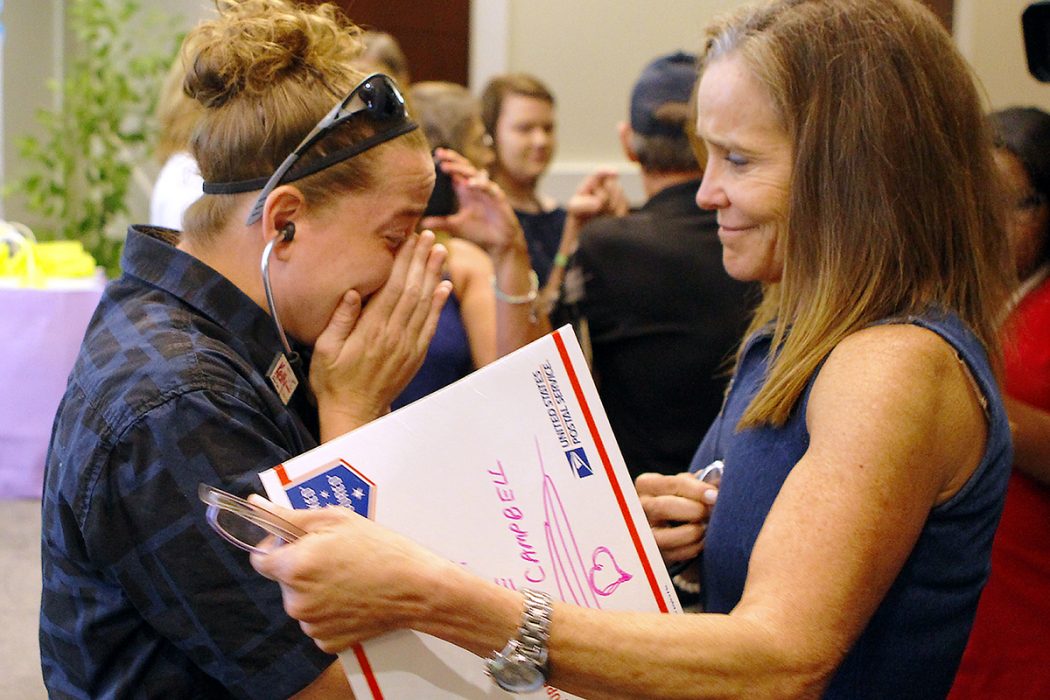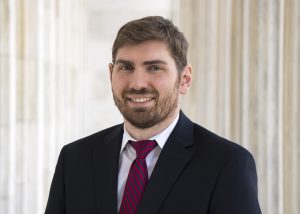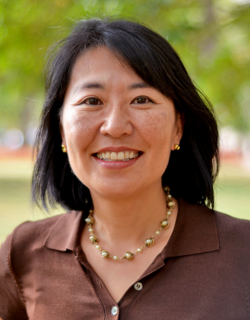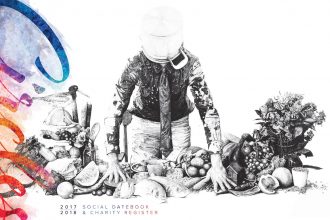Perhaps the first sound Jessica Moore ever heard was her twin sister Haley’s heartbeat in the womb. On April 25, 2017, Jessica listened to that heartbeat once again, this time in the chest of transplant recipient Anne Campbell.
Jessica, her mother Vickie, and father Lee, were overcome with emotion listening through a stethoscope to Campbell’s heart at The Tree of Life ceremony at UF Health Jacksonville Medical Center. The event honored those who have given hope and life through organ donation.
“Words can’t describe the way you feel when you hear that heartbeat again,” Jessica said, wiping away tears. “It’s something you haven’t heard in so long. It’s comforting. It brings so much peace, and it’s healthy.
“Physically, Haley’s not here anymore. Spiritually, she’s here every minute of every day.”
Following a car accident in early August of 2007, 17-year-old Haley was rushed to the hospital and placed on life support. A day later the teen was declared brain dead. Six months before the accident, Jessica said, Haley had expressed the desire to become an organ donor. In keeping with her wishes, the Moore family of Arlington Hills honored that commitment.
“It was the hardest decision I ever had to make,” Vickie Moore said. “I didn’t know how I would feel about my daughter’s organs living on long after Haley was gone.”
Haley’s heart, liver, pancreas, lungs and both kidneys went on to save six lives. To date, Vickie Moore has met three of the six recipients.
But the Moore family feels closest to Campbell, a mother of three from Virginia, who struggled with a rare heart disorder for 13 years. After several tests failed to pinpoint the cause of her condition, doctors finally diagnosed Arrhythmogenic Right Ventricular Dysplasia (ARVD) in which the muscle of her right ventricle was being replaced by fat and fibrous tissue.
A competitive distance runner, Campbell recounted that the ailment resulted in an irregular heartbeat which became progressively worse, leaving her virtually bedridden, unable to work, barely able to walk, and with a dire prognosis from doctors.
On Aug. 5, 2007, however, Campbell received word that a donated heart was available.
Upon awakening following the transplant surgery, Campbell noted she was overcome by a flood of vivid emotions. “My illness was cured by Haley’s heart,” she said through tears at the ceremony. “It’s just an unusual feeling to have a sense of joy and also a sense of sadness knowing one family has lost a loved one.
“But now, meeting Haley’s family, they have personally told me how much it means to them to know her gift has saved so many people.”
Almost immediately, Campbell returned to running and went on to set three world records while winning a gold medal in the 1,500 meters at the 2009 World Transplant Games in Gold Coast, Australia.
Meeting the Moores for the first time at a dinner the evening before April’s ceremony, she gave them the gold medal. “That was a victory for Haley and her family,” Campbell said.
The Tree of Life Ceremony is an annual event at UF Health Jacksonville to honor patients and families who have made the decision to donate their organs.
There are currently more than 120,000 people awaiting donated organs in the United States, according to Patrice Jones, chief nursing officer. Of those, around 22 individuals die each day before a match can be found.
“Every 10 minutes another name is added to the national donor registry,” Jones said.
The names of UF Health Jacksonville patients who donated organs are added to the Tree of Life mural in a ceremony that has taken place over the last eight years. Since April of last year, 21 names were added – 19 on leaves and two on butterflies – completing the mural. The first names of adult patients who donated organs are engraved on the leaves, while the names of children who donated are engraved on the butterflies.
“Of the 80 organs that were donated by these patients in 2016, 53 were transplanted to patients locally at Mayo Clinic and UF Health Shands in Gainesville,” said Danielle Cornell, executive director of LifeQuest Donor Services.
April was designated Donate Life Month, and organizers hope stories like those of Haley Moore and Anne Campbell demonstrate the importance of organ donation and will encourage others to become organ donors.
“Our lives changed forever but we knew we had to make this unselfish act,” Lee Moore said. “Since then, all of us have signed up to become organ donors.”
Most often, organ donors are deceased but some organs can be donated by living donors.
Deceased organ donors can donate kidneys, liver, lungs, heart, pancreas, and intestines. In 2014, hands and faces were added to the organ transplant list.
Living organ donors can donate one kidney, a lung, or a portion of the liver, pancreas, or intestine.
By registering as a cornea donor, individuals can leave behind the gift of sight. In 2015, there were 48,792 successful corneal transplants.
Additionally, the middle ear, skin, heart valves, bone, veins, cartilage, tendons, and ligaments can be stored in tissue banks and used to cover burns, repair hearts, replace veins, and mend damaged connective tissue and cartilage in recipients.
Every organ donor can save up to eight people and improve up to 50 lives through various donations. Registration and additional information is available at DonateLifeFlorida.org.





